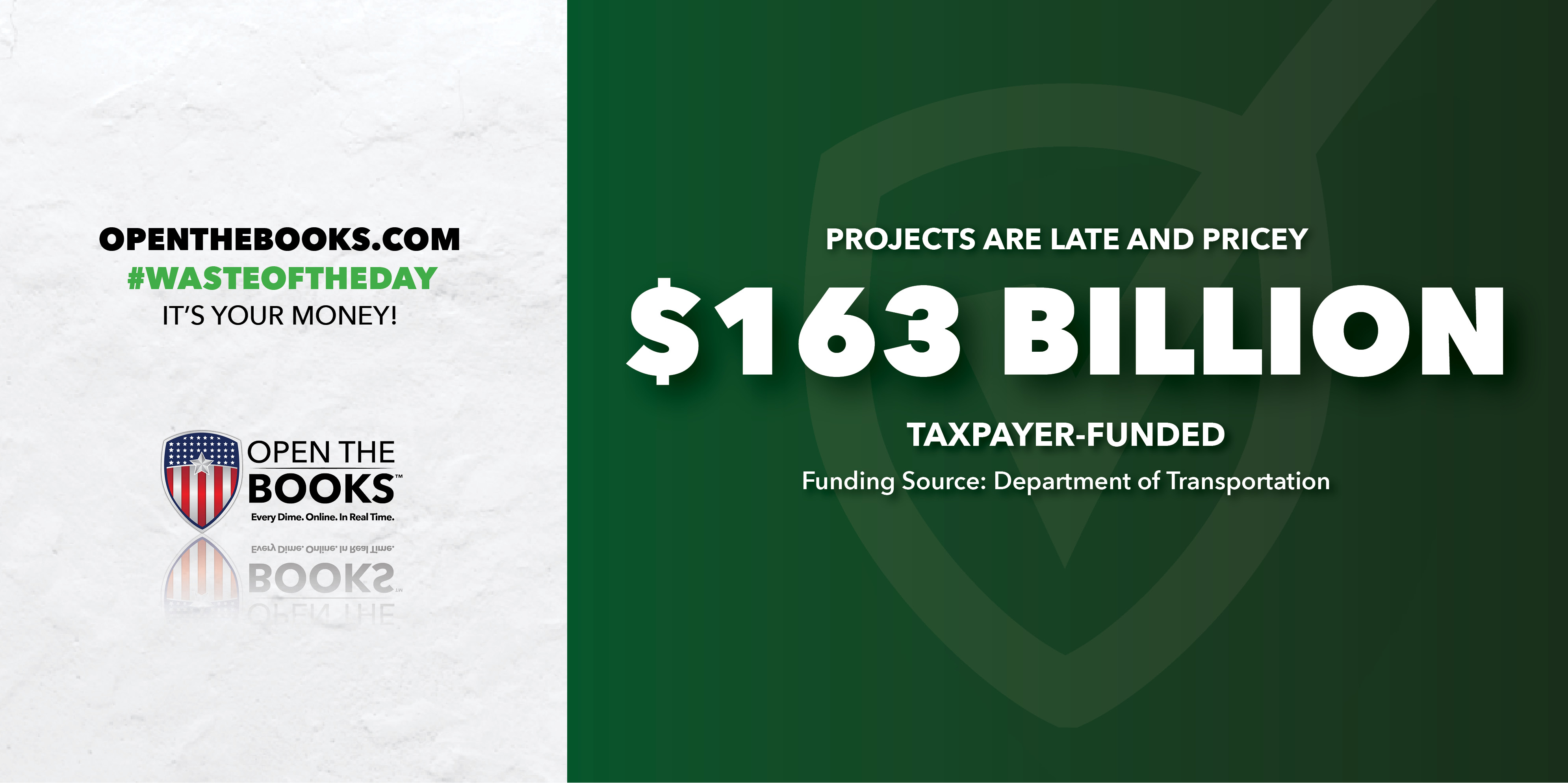Waste of the Day: Delays, Cost Overruns in Transit Projects
Topline: A new report from Sen. Joni Ernst (R-IA) identified 13 federally funded construction projects that are collectively $163 billion over budget and up to 19 years behind schedule.
Key facts: Ernst’s report, “Off The Rails: The Billion Dollar Boondoggles Taking Taxpayers for a Ride,” has been in progress since 2021.
The senator has been fighting projects that are over budget and behind schedule for years.

She added a clause to the 2021 Infrastructure Investment and Jobs Act requiring the Department of Transportation to issue an annual report listing projects that are either $1 billion over budget or five years behind schedule.
But the report was not issued for years; Ernst claims it was “withheld by the Biden administration.” Finally, Secretary of Transportation Sean Duffy sent it to Vice President J.D. Vance this June. Still, the report was only one page long and “missing key information,” according to Ernst.
The report is headlined by California’s high-speed rail project, which the DOT says is $95 billion over budget. Gov. Gavin Newsom said he has “audit fatigue” over all the problems officials have identified with the rail line, which was supposed to be completed in 2020 but will not begin construction until 2033.
The report also calls out Honolulu’s High-Capacity Transit Corridor Project, a driverless rail line that was supposedly “shovel ready” when the DOT committed $1.6 billion to it in 2012. The total cost including local funding was originally $5.1 billion, but that has increased to $9.9 billion.
In Maryland, the National Capital Purple Line light rail system has increased in cost from $5.6 billion to $9.3 billion. Diana Furchtgott-Roth, a former DOT deputy assistant secretary, estimated that Maryland could build 900 schools or 1,500 police stations for the same price.
The report does not mention the nearby Red Line light rail, which is still in limbo despite receiving a $900 million federal grant that has already been repurposed. As of last year, proposals for the project could add $4.3 billion to the price tag.
Renovations to a 1.5-mile stretch of the Columbus Crossroads highway in Ohio were supposed to be finished in 2018, but the project is delayed until 2037. It will use $1.1 billion of federal funds, according to Ernst’s report.
Summary: Identifying potentially wasteful construction projects is a good first step, but Congress must use the information to prevent similar mistakes in the future.
The #WasteOfTheDay is brought to you by the forensic auditors at OpenTheBooks.com






